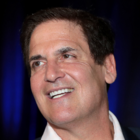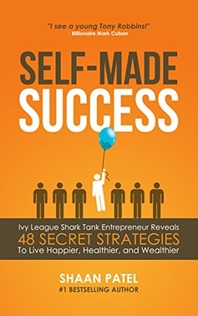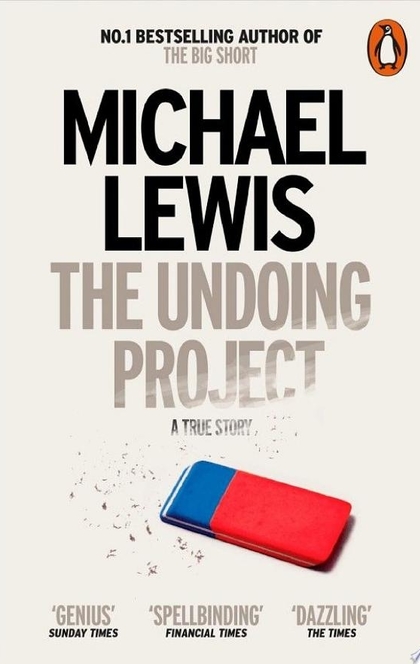
Mark Cuban Reading List - 21 Recommended Books
Mark Cuban
Check out the fullest list of books suggested by Mark Cuban. "Shark Tank" entrepreneur's list of books is as ambitious and practical as Mark himself.
See all
0
likes
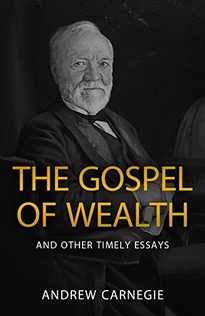
The Gospel of Wealth and Other Timely Essays
This was a reading assignment in an MBA entrepreneurship class that I snuck into at Indiana University. Bottom line is that among the many patriotic things you can do, one is get rich and pay your taxes.
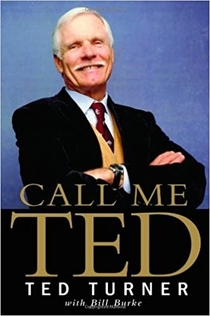
Call Me Ted
I like to read biographies of successful people. Ted Turner’s bio was always big for me because he worked hard and played hard.
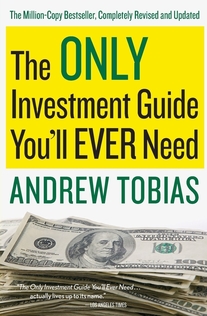
The Only Investment Guide You'll Ever Need
This is the only investment guide I have read that truly made sense. Bottom line is that you can take a measure of risk on the $5,000 you have to invest in an attempt to earn 10% in the stock market, while praying that it all doesn’t disappear because someone bought too many yen derivatives. Or you can save 15% on the $5,000 a year you spend on replenishables, from toilet paper to cereal to who knows what, and put it in the bank on top of the original $5,000, earn an easy 5%, plus accrued interest, on the total and sleep very well at night
See all
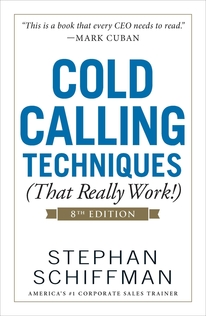
Cold Calling Techniques (That Really Work!)
The definitive guide to cold calling success!For more than thirty years, Stephan Schiffman, America's #1 corporate sales trainer, has shown millions of salespeople how to close a deal. In this newest edition of Cold Calling Techniques (That Really Work!), he'll show you why cold calling is still a central element of the sales cycle and where to find the best leads. Updated with new information on e-mail selling, refining voice-mail messages, and online networking, his time-tested advice includes valuable discussion points that you'll need to cover in order to effectively present your product or service and arrange a meeting. Schiffman teaches you how to use his proven strategies to:Turn leads into prospectsLearn more about the client's needsConvey the ability to meet the client's demandsOvercome common objections With Cold Calling Techniques (That Really Work!), 7th Edition, you'll watch your performance soar as you beat the competition and score a meeting every time!
See all
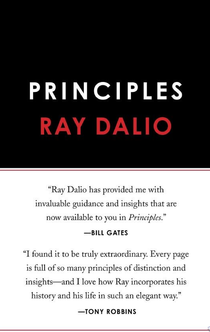
Principles
Recently, Cuban read a copy of “Principles: Life and Work” by Ray Dalio, the founder of Bridgewater Associates.
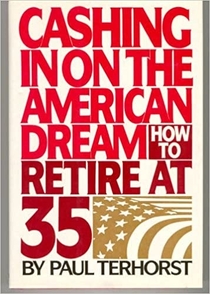
Cashing in on the American Dream
Cuban says a major source of inspiration for living on the cheap was the book Cashing In on the American Dream: How to Retire by the Age of 35. The book was published in 1988 by Paul Terhorst, who achieved this feat and said one can retire with a modest net worth—if they only spend $50 a day.
See all

The Only Game in Town
The best-seller gives readers a look at the world’s economic and financial future and offers advice on how to avoid the next global financial crisis.
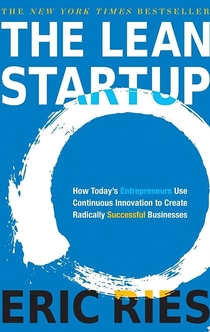
The Lean Startup
“The Lean Startup” tackles the question, “Why do most start-ups fail?”It gives readers ways to test their vision through the process of creating a business.
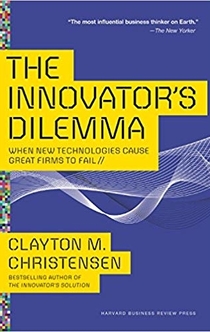
The Innovator's Dilemma
Cuban posted about this book, along with the four books that follow in this list, on Cyberdust, the private messaging app in which he is an investor. The book is by a Harvard Business School professor who discusses how business leaders can stay relevant in the face of changing technology.
See all

The Fountainhead
“It encouraged me to think as an individual,” he says, “take risks to reach my goals, and responsibility for my successes and failures.”

ReWork
n a review for the book, Cuban writes, “If given a choice between investing in someone who has read ‘Rework’ or has an MBA, I’m investing in ‘Rework’ every time.”

Mr. Putin
What’s an interesting book/article you’re reading now or finished? And why? “‘The True Believer: Thoughts on the Nature of Mass Movements,’ by Eric Hoffer. ‘Machine Learning for Dummies,’ by John Paul Mueller and Luca Massaron. ‘The White Working Class: Overcoming Class Cluelessness in America,’ by Joan Williams. ‘Mr. Putin: Operative in the Kremlin,’ by Fiona Hill and Clifford G. Gaddy. I’m trying to keep up with what’s happening around the world. So my reading has been a little more eclectic than past summers.”
See all
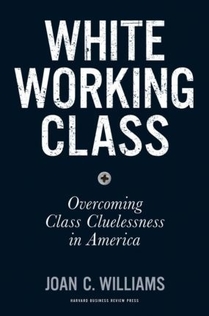
White Working Class
What’s an interesting book/article you’re reading now or finished? And why? “‘The True Believer: Thoughts on the Nature of Mass Movements,’ by Eric Hoffer. ‘Machine Learning for Dummies,’ by John Paul Mueller and Luca Massaron. ‘The White Working Class: Overcoming Class Cluelessness in America,’ by Joan Williams. ‘Mr. Putin: Operative in the Kremlin,’ by Fiona Hill and Clifford G. Gaddy. I’m trying to keep up with what’s happening around the world. So my reading has been a little more eclectic than past summers.”
See all

The True Believer
What’s an interesting book/article you’re reading now or finished? And why? “‘The True Believer: Thoughts on the Nature of Mass Movements,’ by Eric Hoffer. ‘Machine Learning for Dummies,’ by John Paul Mueller and Luca Massaron. ‘The White Working Class: Overcoming Class Cluelessness in America,’ by Joan Williams. ‘Mr. Putin: Operative in the Kremlin,’ by Fiona Hill and Clifford G. Gaddy. I’m trying to keep up with what’s happening around the world. So my reading has been a little more eclectic than past summers.”
See all

Machine Learning For Dummies
What’s an interesting book/article you’re reading now or finished? And why? “‘The True Believer: Thoughts on the Nature of Mass Movements,’ by Eric Hoffer. ‘Machine Learning for Dummies,’ by John Paul Mueller and Luca Massaron. ‘The White Working Class: Overcoming Class Cluelessness in America,’ by Joan Williams. ‘Mr. Putin: Operative in the Kremlin,’ by Fiona Hill and Clifford G. Gaddy. I’m trying to keep up with what’s happening around the world. So my reading has been a little more eclectic than past summers.”
See all

The Great Revolt
A CNN political analyst and a Republican strategist reframe the discussion of the “Trump voter” to answer the question, What’s next? NAMED ONE OF THE BEST BOOKS OF THE YEAR BY FOREIGN AFFAIRS • “Unlike most retellings of the 2016 election, The Great Revolt provides a cohesive, non-wild-eyed argument about where the Republican Party could be headed.”—The Atlantic Political experts were wrong about the 2016 election and they continue to blow it, predicting the coming demise of the president without pausing to consider the durability of the winds that swept him into office.Salena Zito and Brad Todd have traveled over 27,000 miles of country roads to interview more than three hundred Trump voters in ten swing counties. What emerges is a group of citizens who span job descriptions, income brackets, education levels, and party allegiances, united by their desire to be part of a movement larger than themselves. They want to put pragmatism before ideology, put localism before globalism, and demand the respect they deserve from Washington.The 2016 election signaled a realignment in American politics that will outlast any one president. Zito and Todd reframe the discussion of the “Trump voter” to answer the question, What’s next?
See all

That's What She Said
A FINANCIAL TIMES BUSINESS BOOK OF THE MONTH'Urgently needed' Charles Duhigg, bestselling author of THE POWER OF HABIT and SMARTER'Attention, good guys: this book is for you' Adam Grant, bestselling author of ORIGINALS and OPTION B with Sheryl Sandberg 'I know what you're thinking: 'Not another career guide-cum-manifesto, telling us to "woman up" and demand more money.' But that isn't what Lipman says. Instead, she uses data, reams of it, to expose how the system is rigged against women. She then calls for men to join the fight to make the workplace more equal' SUNDAY TIMES STYLE MAGAZINEWomen spend their working lives adapting to an environment set up for men, by men: from altering the way they speak to changing the clothes they wear to power posing. But still the gender gap persists. And once you see it - women being overlooked, interrupted, their ideas credited to men - it's impossible to ignore. But it needn't be this way.Diving deep into the wide range of government initiatives, corporate experiments and social science research Joanne Lipman offers fascinating new revelations about the way men and women work culled from the Enron scandal, from brain research, from transgender scientists and from Iceland's campaign to 'feminise' an entire nation. Packed with fascinating and entertaining examples - from the woman behind the success of Tupperware to how Google reinvented its hiring process - That's What She Said is a rallying cry to both men and women to finally take real steps towards closing the gender gap.Previously published as WIN WIN: When Business Works for Women, It Works for Everyone
See all

Political Tribes
The bestselling author of Battle Hymn of the Tiger Mother, Yale Law School Professor Amy Chua offers a bold new prescription for reversing our foreign policy failures and overcoming our destructive political tribalism at home Humans are tribal. We need to belong to groups. In many parts of the world, the group identities that matter most – the ones that people will kill and die for – are ethnic, religious, sectarian, or clan-based. But because America tends to see the world in terms of nation-states engaged in great ideological battles – Capitalism vs. Communism, Democracy vs. Authoritarianism, the “Free World” vs. the “Axis of Evil” – we are often spectacularly blind to the power of tribal politics. Time and again this blindness has undermined American foreign policy. In the Vietnam War, viewing the conflict through Cold War blinders, we never saw that most of Vietnam’s “capitalists” were members of the hated Chinese minority. Every pro-free-market move we made helped turn the Vietnamese people against us. In Iraq, we were stunningly dismissive of the hatred between that country’s Sunnis and Shias. If we want to get our foreign policy right – so as to not be perpetually caught off guard and fighting unwinnable wars – the United States has to come to grips with political tribalism abroad. Just as Washington’s foreign policy establishment has been blind to the power of tribal politics outside the country, so too have American political elites been oblivious to the group identities that matter most to ordinary Americans – and that are tearing the United States apart. As the stunning rise of Donald Trump laid bare, identity politics have seized both the American left and right in an especially dangerous, racially inflected way. In America today, every group feels threatened: whites and blacks, Latinos and Asians, men and women, liberals and conservatives, and so on. There is a pervasive sense of collective persecution and discrimination. On the left, this has given rise to increasingly radical and exclusionary rhetoric of privilege and cultural appropriation. On the right, it has fueled a disturbing rise in xenophobia and white nationalism. In characteristically persuasive style, Amy Chua argues that America must rediscover a national identity that transcends our political tribes. Enough false slogans of unity, which are just another form of divisiveness. It is time for a more difficult unity that acknowledges the reality of group differences and fights the deep inequities that divide us.
See all

Our Mathematical Universe
Max Tegmark leads us on an astonishing journey through past, present and future, and through the physics, astronomy and mathematics that are the foundation of his work, most particularly his hypothesis that our physical reality is a mathematical structure and his theory of the ultimate multiverse. In a dazzling combination of both popular and groundbreaking science, he not only helps us grasp his often mind-boggling theories, but he also shares with us some of the often surprising triumphs and disappointments that have shaped his life as a scientist. Fascinating from first to last—this is a book that has already prompted the attention and admiration of some of the most prominent scientists and mathematicians.
See all

The Undoing Project
THE NEW INTERNATIONAL BESTSELLER FROM THE AUTHOR OF THE BIG SHORT AND FLASH BOYS'A gripping account of how two psychologists reshaped the way we think ... What a story it is' Sunday Times 'You'll love it ... full of surprises and no small degree of tragedy' Tim HarfordIn 1969 two men met on a university campus. Their names were Daniel Kahneman and Amos Tversky. They were different in every way. But they were both obsessed with the human mind - and both happened to be geniuses. Together, they would change the way we see the world.'An enchanted collaboration ... During the final pages, I was blinking back tears' The New York Times 'My favourite writer full stop. Engages both heart and brain like no other' Daily Telegraph'Brilliant, a wonderful book, a masterclass' Spectator 'Psychology's Lennon and McCartney ... Lewis is exactly the storyteller they deserve' Observer
See all
